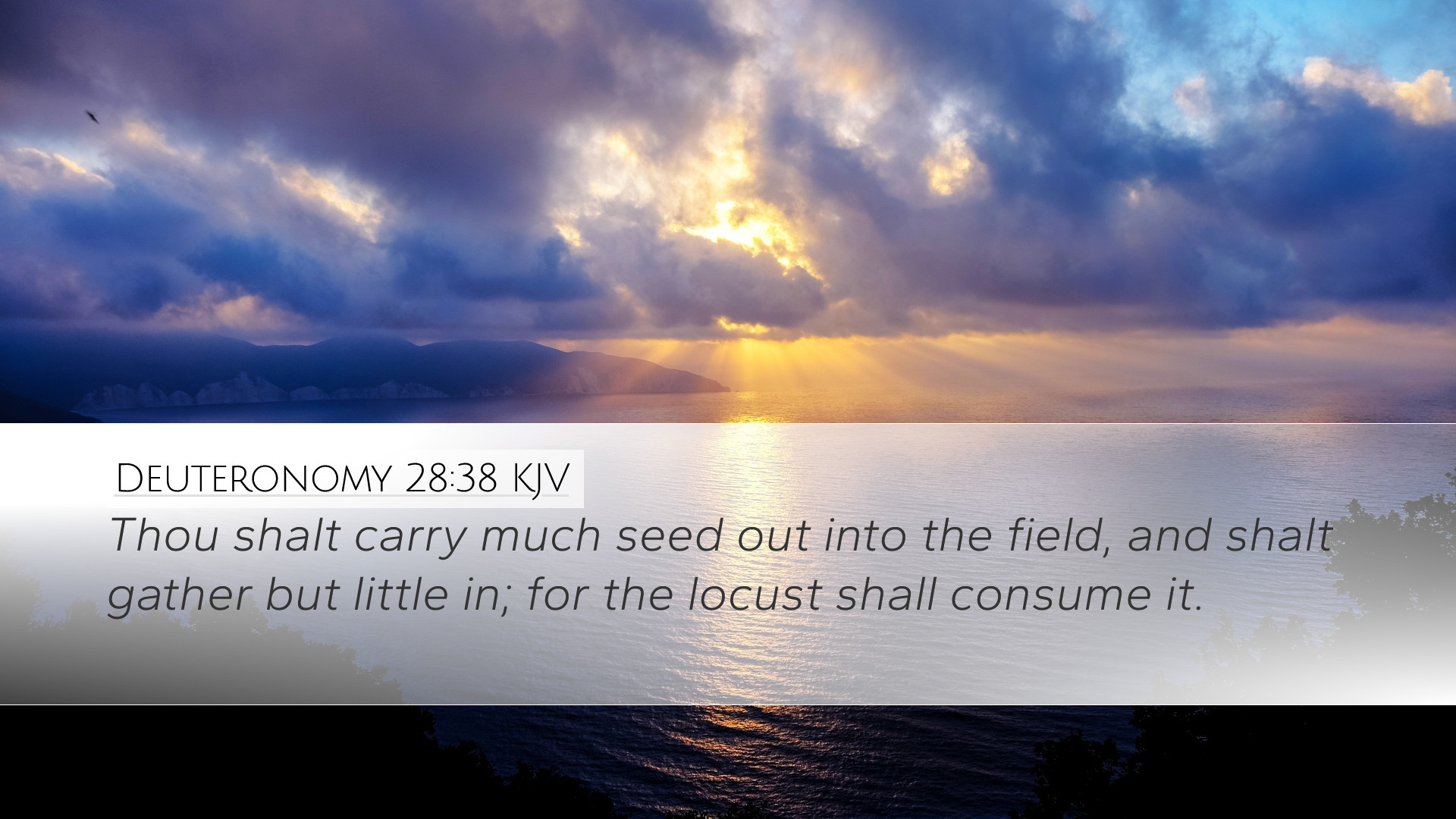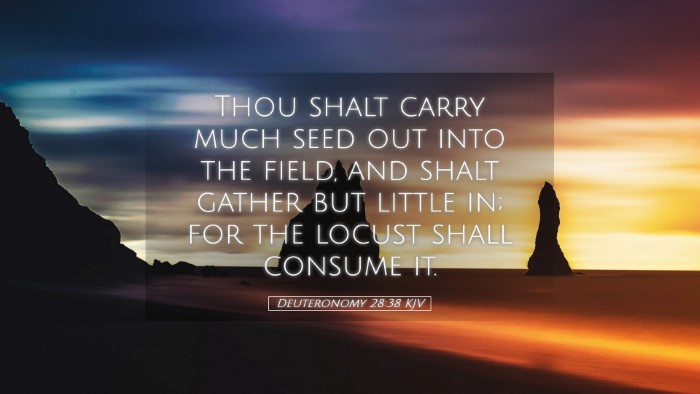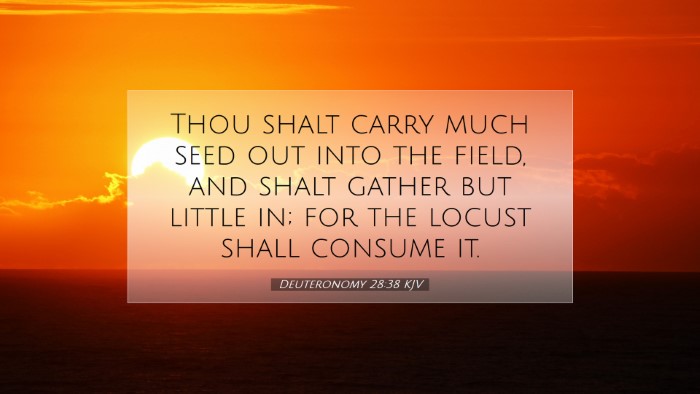Commentary on Deuteronomy 28:38
Bible Verse: "Thou shalt carry much seed out into the field, and shalt gather but little in; for the locust shall consume it."
Overview
This verse falls within the broader context of Deuteronomy 28, which outlines the blessings and curses associated with the covenant between God and Israel. The curses referenced in this chapter are a solemn warning from God to His people about the dire consequences of disobedience. Deuteronomy 28:38 specifically addresses the aspect of agricultural failure as part of divine retribution.
Contextual Analysis
Deuteronomy was written in a transitional period as the Israelites were poised to enter the Promised Land. Here, Moses speaks to the future generations about the significance of adherence to God’s commands. Verse 38 serves as a poignant reminder of the possible repercussions of refusing to follow God’s statutes, particularly relating to their agricultural economy.
Insights from Matthew Henry
Matthew Henry highlights the calamity of diminished harvests as a sign of God's displeasure. He states that despite the effort put forth in sowing seeds, the anticipated bounty will be lost due to locusts—symbolic of divine judgment. Henry underscores the notion that God can thwart human labor and expectation when His commandments are ignored. The locust, in biblical tradition, serves as a significant instrument of God’s judgment, reflecting the fragility of human efforts in contrast to divine sovereignty.
Insights from Albert Barnes
Albert Barnes expounds upon the agricultural implications of this verse. He notes that the significant labor involved in agriculture will yield little return when God's judgment is upon the people. The imagery of sowing much and reaping little illustrates not only the physical loss but also a spiritual lesson regarding dependence on God for blessings. Barnes elaborates on the idea that when Israel turns away from God, even their most diligent efforts will result in futility, thereby spiritually impoverishing them in addition to physically impoverishing them.
Insights from Adam Clarke
Adam Clarke provides a detailed commentary on the locusts themselves, suggesting they may have been a metaphor for various forms of punishment—both tangible and intangible. His analysis points out that while the act of sowing seeds is inherently hopeful, the presence of locusts represents despair and destruction. Clarke emphasizes that it is a clear indication that God’s disfavor can manifest in many forms, and highlights the need for the Israelites to remain steadfast in their faithfulness to God to prevent such calamities.
Theological Implications
The ramifications of Deuteronomy 28:38 extend beyond the immediate agricultural context into broader theological themes. The verse serves as a reminder of the covenantal relationship between God and His people, where blessings are contingent upon obedience. The significance of agricultural fertility in the ancient Near East cannot be overstated, as sustenance is intrinsically linked to community survival and prosperity. Through the metaphor of sowing and reaping, believers today are reminded of the principles of sowing faith and obedience to ultimately reap God’s blessings in various areas of life.
Practical Applications
- Dependence on God: The verse emphasizes the need for total reliance on God. No matter the effort, without divine favor, success is unattainable.
- The Weight of Disobedience: Reflecting on the consequences of straying from God’s commandments can serve as a moral compass for both personal and communal conduct.
- Encouragement to Persevere: Even when endeavors yield little, believers should recognize that persistence in faith can eventually lead to divine provision.
Conclusion
In reflection, Deuteronomy 28:38 serves as a profound warning and a call to faithful living. The insights gathered from various commentaries elucidate the importance of obedience and the serious consequences of neglecting divine commandments. For pastors, students, and scholars, this verse invites deep consideration of the implications not only for ancient Israel but for today’s believers in the ongoing covenantal relationship with God.


